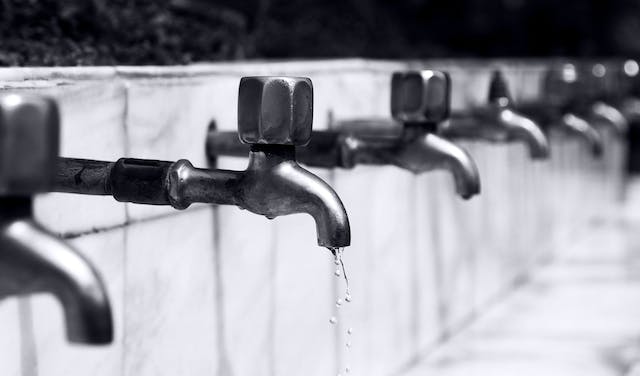Leaks can develop in your plumbing system anywhere from the water meter under the ground up to high-end pipes. Connect with emergency plumbing repair professionals to fix leaking water issue because this can lead to mildew formation and serious electrical problems in your home. Not only that, but leaking water can soak the walls and cause damage to interior flooring and carpet.
Each leak is different, so having a licensed plumber will help you identify the factors causing these leaks so they may be repaired quickly.
However, if you want to take a DIY approach, the best way is to be proactive and follow these tips.
Drain Clogs
Clogs are caused by sediment around the fixture’s inlet or deflection by a foreign object. The sediment causes the water to become “stuck” and can lead to increased pressure. It can damage your fixture and surrounding property.
Fixing a clogged shower, sink, or toilet can be difficult but not impossible. It can require many hours of work under often cramped and difficult conditions. Remember, one slip of your wrench could result in costly plumbing repairs.
Some Common Causes of Clogging
- A blockage in the drain or waste pipe
- Excessive levels of hair, soap, and toothpaste debris
- Inadequate flushing power or frequency
Tips to Avoid Clogging in The First Place
- Clean the sink filter every day to keep it free of debris and buildup from hair and food particles.
- Keep showers under two minutes long to minimize scalding hot water buildup in pipes.
- Keep the faucet at just under halfway open so you don’t waste water while you wash dishes.
- Use a plunger or stiff wire to dislodge anything stuck in your drain.
Broken Seals
If you have a broken seal, moisture is entering your appliance regularly, leading to corrosion of the metal parts. It will decrease the efficiency and performance of your appliance, ultimately sending a higher cost your way.
Causes of Broken Seals:
- The water pressure from the sink, tub, or shower is too high.
- There’s too much soap being used.
- The seal was installed incorrectly.
- The pipe is damaged, and the water pressure is not able to be appropriately distributed.
- There’s an obstruction in the pipe.
Pro Tip:
Broken seals can occur in various places in your appliance, including the door gasket, door hinge, cooking chamber edge, and filters. When you replace these items, you may not be 100% sure that it is the source of the leak or other problems. To ensure that a broken seal is truly the problem for your condensation issues, it will require an inspection by a licensed plumber.
High Water Pressure
High water pressure can lead to a sizeable leak in your home. This includes big leaks in your pipes that cause thousands of dollars worth of damage, as well as small leaks that result in thousands of gallons of water lost each year.
To add to the problem, excessive high-water pressure does not allow the water to flow through the pipes effectively and efficiently, leading to a lack of hot water or low water pressure.
If you notice your water pressure is much higher than the standard 60 psi, it could be a sign of a severe problem with your home’s plumbing.
Causes of High-Water Pressure
- Leakage in faulty pressure regulator on a faucet
- Poorly constructed building
- Old and corroded pipes
- Not enough insulation in the pipe or its covering
Prevention Tips
- Installing a water pressure gauge in the bathroom
- Replacing old or worn-out faucets with new ones
- Using shutoff valves for sinks and showers
Bonus Tip
A licensed plumber will identify the source of high water pressure and develop solutions for how to fix it.
Hot Water Heaters
Water heaters have an average lifespan ranging from 7 to 13 years before they stop supplying you with a good hot shower. When a heating system wears out, you may be able to determine when it will need to be repaired or replaced. It’s not uncommon, though, to be blissfully oblivious of a problem until you discover your basement has a little creek. Then, it’s time to contact a plumber!
Remember: A little planning now is better than emergency plumbing later; be sure your water heater isn’t due for servicing or replacement.
Final Thoughts
Pipes are prone to leakage problems due to the material they are made of. Pipes leakage might lead to serious health and safety issues for people living nearby. You must take steps before it gets too late. And as now you know how to tackle and prevent plumbing leaks in your home. The next time one of these nagging problems occurs, rest assured you’ll know just what to do.

